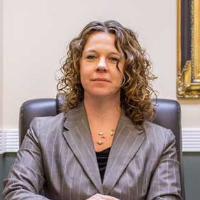Oxford Misdemeanor Lawyer, Ohio
Stephenie Nichole Lape
✓ VERIFIED *Status is reviewed annually. For latest information visit hereCriminal, DUI-DWI, Misdemeanor, Felony
Stephenie Lape is the quintessential attorney. She is intelligent, extremely hardworking, and brutally honest. Stephenie comes from a long line of att... (more)
Bradley J. Groene
✓ VERIFIED *Status is reviewed annually. For latest information visit hereCriminal, Felony, Misdemeanor, DUI-DWI, White Collar Crime
Cincinnati native Bradley J. Groene is a compassionate and industrious legal advocate who has been practicing law in the greater Cincinnati metropolit... (more)
Alvaro Martinez Puentes
Criminal, Immigration, Misdemeanor
Status: In Good Standing *Status is reviewed annually. For latest information visit here
Richard Goldberg
Felony, White Collar Crime, Misdemeanor, Misdemeanor
Status: In Good Standing *Status is reviewed annually. For latest information visit here
Mark Wieczorek
Criminal, DUI-DWI, Felony, Misdemeanor
Status: In Good Standing *Status is reviewed annually. For latest information visit here
FREE CONSULTATION
CONTACTRonna S. Lucas
Misdemeanor, Criminal
Status: In Good Standing *Status is reviewed annually. For latest information visit here
William Zack Ellis
Misdemeanor
Status: In Good Standing *Status is reviewed annually. For latest information visit here Licensed: 15 Years
Richard R. Campbell
DUI-DWI, Misdemeanor, Felony, Criminal
Status: In Good Standing *Status is reviewed annually. For latest information visit here Licensed: 14 Years
FREE CONSULTATION
CONTACTStephenie Lape Wolfinbarger
Felony, Misdemeanor, Criminal
Status: In Good Standing *Status is reviewed annually. For latest information visit here Licensed: 14 Years
Joseph Bernard Suhre
Criminal, DUI-DWI, Misdemeanor, Felony, Juvenile Law
Status: In Good Standing *Status is reviewed annually. For latest information visit here
FREE CONSULTATION
CONTACT


